10 Best Model Versioning Tools for Your ML Workflow
Model versioning tools enhance ML workflows by tracking changes, facilitating collaboration, and ensuring reproducibility. This guide details top tools like Git, DVC, MLflow, and Kubeflow, highlighting features that help manage model development, experiment tracking, and deployment.

Imagine working on a groundbreaking ML model, but when it’s time to deploy or reproduce results, chaos ensues.
Which version had the highest accuracy? Did someone update the hyperparameters? Is that last-minute tweak even documented?
For many ML teams, this scenario is all too common—a race against time to locate the “golden” model version amidst scattered experiments.
In machine learning, innovation thrives on iteration, but without the right tools, tracking every step becomes a daunting task. That’s not just frustrating—it’s a roadblock to progress.
But here’s the silver lining: model versioning tools are designed to bring order to this chaos. These platforms go beyond simple tracking—they enable seamless collaboration, experiment tracking, and smooth deployment workflows.
In this blog, we’ll introduce you to 10 standout model versioning tools, highlighting how they transform ML workflows from confusion to clarity.
Whether you’re an individual researcher or part of a team managing multiple models, these tools ensure that your innovation isn’t lost in the noise.
Let’s explore!
What are Model Versioning Tools?
Model versioning tools are tools designed to help data scientists and machine learning (ML) engineers manage and organize their ML models. These tools allow you to track changes to your models over time, collaborate with team members, and ensure reproducibility.
In an ML project, a model versioning tool is typically used to track the different versions of a model that have been developed, along with any changes made to the model and its associated data and code. This allows you to keep track of the development process, compare different versions of the model, and reproduce results.
With features like version control, model comparison, and collaboration, model versioning technologies often offer a user-friendly interface for managing models.
Additionally, they can include APIs for logging model training data and parameters, making it simple for you to monitor and assess your models' performance over time.
Overall, model versioning tools are a crucial part of any ML workflow because they help ensure ML models' precision and repeatability.
Why should you use Model Versioning Tools for Your ML Workflow?
Model versioning tools are essential for managing and maintaining a well-organized machine learning (ML) workflow. They provide several benefits that improve collaboration, reproducibility, and efficiency.
Here are some reasons why you should use model versioning tools for your ML workflow:
- Reproducibility: ML models are built upon various dependencies such as datasets, preprocessing code, training algorithms, and hyperparameters.
With model versioning tools, you can track the exact versions of these dependencies used to create a particular model.
This ensures that future results can be reproduced, even if the underlying tools or libraries change. - Collaboration and Teamwork: In ML projects, multiple team members often work together, making model changes, experimenting with different approaches, or working on various components simultaneously.
Model versioning tools enable seamless collaboration by allowing team members to track each other's work, merge changes, and revert to previous versions if needed.
They provide a centralized repository for models, facilitating efficient teamwork. - Experiment Tracking: ML workflows involve multiple experiments with different model architectures, hyperparameters, and data configurations.
Model versioning tools enable you to log and track these experiments, recording the specific settings and results for each.
This makes it easier to compare the performance of different models and understand what factors contribute to success or failure. - Model Deployment and Monitoring: Once a model is deployed, it requires regular updates, bug fixes, and enhancements.
Model versioning tools make it easier to manage the deployment pipeline by tracking the versions of models in production.
If an issue arises, you can quickly identify the specific model version causing the problem and roll back to a previous stable version. - Auditing and Compliance: In regulated industries or research environments, it's crucial to maintain a complete audit trail of model development and deployment.
Model versioning tools provide a comprehensive history of changes, making it easier to trace back the evolution of models, understand the decision-making process, and comply with regulatory requirements. - Documentation and Communication: Model versioning tools enable you to attach documentation, comments, and annotations to specific model versions.
This facilitates knowledge sharing, allowing team members to communicate ideas, document insights, and share best practices. It also helps new team members understand the context and history of the models they are working on. - Easy Rollbacks and Bug Fixing: Changes made to a model or its dependencies can sometimes introduce bugs or unforeseen issues.
Model versioning tools enable you to quickly roll back to a previous stable version quickly. This helps diagnose and fix problems by isolating the changes made since the last known working version.
Next, let’s take a look at popular Popular Model Versioning Tools for Your ML Workflow.
Popular Model Versioning Tools for Your ML Workflow
Here are the top 10 model versioning tools available in the market today, along with their features and benefits:
1. Git
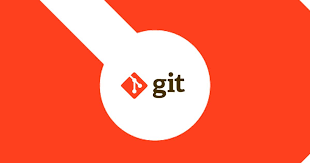
Git is the most widely used version control system for tracking changes in code, including machine learning projects. It allows teams to collaborate on code, manage project history, and ensure reproducibility. Git works well with popular platforms like GitHub, GitLab, and Bitbucket.
Top Features:
- Distributed version control system.
- Branching and merging for collaboration.
- Easy integration with CI/CD pipelines.
- Tracks all types of files, including ML code.
Pros:
- Free and open-source.
- Large community support.
- Works across operating systems.
Cons:
- Steep learning curve for beginners.
- Not specialized for large datasets or ML-specific needs.
Pricing:
- Free to use under the GNU GPL license.
G2 Reviews:
- Users praise its reliability and flexibility.
- Some find advanced features difficult to learn.
2. DVC
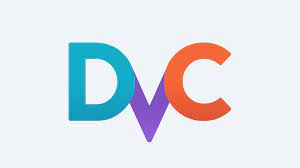
Data Version Control (DVC) is an open-source tool designed specifically for versioning data and machine learning models. It integrates with Git and helps manage datasets, experiments, and ML pipelines. DVC is ideal for ML workflows where data tracking is crucial.
Top Features:
- Version control for datasets and models.
- Seamless integration with Git.
- Reproducibility for ML pipelines.
- Support for cloud storage.
Pros:
- Easy to use for ML projects.
- Efficient for large datasets.
- Open-source with active development.
Cons:
- Requires basic Git knowledge.
- Limited visualization tools compared to others.
Pricing:
- Free under the Apache 2.0 license.
G2 Reviews:
- Users love its ability to manage data efficiently.
- Some feel it could improve in handling complex pipelines.
3. MLflow
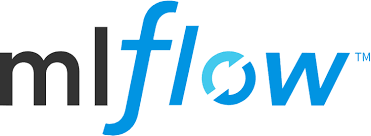
MLflow is an open-source platform for managing the entire ML lifecycle, including experiment tracking, model versioning, and deployment. It simplifies workflows for data scientists and integrates well with popular ML frameworks.
Top Features:
- Experiment tracking with parameters and metrics.
- Centralized model registry.
- Compatibility with multiple frameworks like TensorFlow and PyTorch.
- Tools for deployment and monitoring.
Pros:
- Comprehensive lifecycle management.
- Supports multiple languages and frameworks.
- Active open-source community.
Cons:
- May feel complex for small projects.
- Requires server setup for advanced features.
Pricing:
- Free and open-source; managed versions available (Databricks).
G2 Reviews:
- Users appreciate its lifecycle management features.
- Some mention the complexity of initial setup.
4. Pachyderm
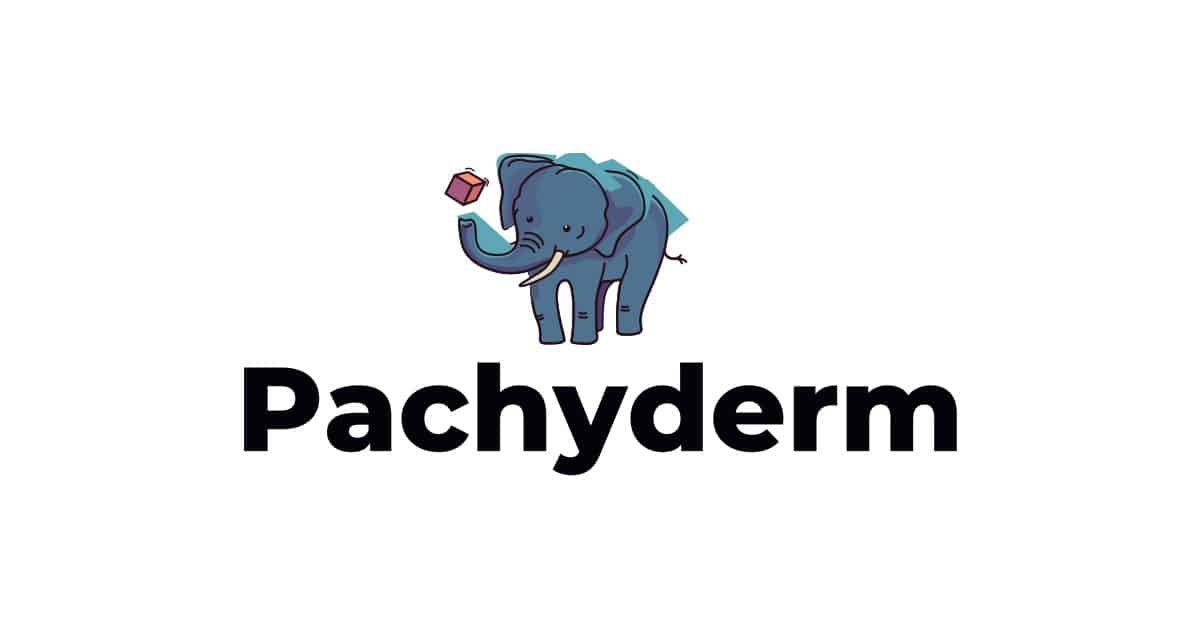
Pachyderm is a data versioning and pipeline orchestration platform built for large-scale ML workflows. It combines data lineage tracking with reproducible pipelines, making it a strong choice for enterprises handling big data.
Top Features:
- Automated data lineage tracking.
- Scalable pipeline orchestration.
- Integration with Kubernetes.
- Support for both structured and unstructured data.
Pros:
- Powerful for big data and enterprise use.
- Ensures reproducibility in workflows.
- Handles complex dependencies well.
Cons:
- Steeper learning curve than simpler tools.
- Requires Kubernetes knowledge.
Pricing:
- Free community version; enterprise plans available.
G2 Reviews:
- Users praise its scalability and pipeline management.
- Some feel it’s overkill for smaller teams.
5. Neptune.ai
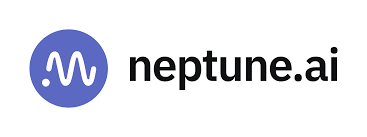
Neptune.ai is a lightweight tool for managing ML experiments and model metadata. It helps data scientists track versions of models, datasets, and hyperparameters in one place. Neptune.ai is ideal for teams focused on collaboration and reproducibility.
Top Features:
- Experiment tracking with rich metadata.
- Easy integration with popular ML frameworks.
- Collaboration tools for team workflows.
- Cloud and on-premise deployment options.
Pros:
- User-friendly interface.
- Great for tracking and collaboration.
- Flexible deployment options.
Cons:
- Limited model deployment features.
- Advanced features may require paid plans.
Pricing:
- Free plan available; paid plans for advanced features.
G2 Reviews:
- Users highlight its ease of use and collaboration features.
- Some wish for deeper integration with deployment tools.
6. Polyaxon
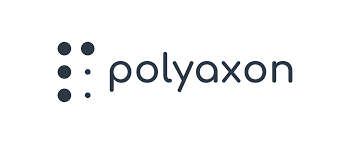
Polyaxon is an open-source platform for managing machine learning workflows. It helps with experiment tracking, model versioning, and pipeline automation. Polyaxon integrates seamlessly with cloud and on-premise environments, making it suitable for both startups and enterprises.
Top Features:
- Experiment tracking and visualization.
- Workflow orchestration and pipeline automation.
- Support for distributed training.
- Integration with Kubernetes and cloud platforms.
Pros:
- Scalable for large teams.
- Customizable for various workflows.
- Rich dashboard for tracking and analysis.
Cons:
- Requires Kubernetes expertise for setup.
- Can be resource-intensive.
Pricing:
- Free community version; paid plans for advanced features.
G2 Reviews:
- Users appreciate its flexibility and scalability.
- Some feel the setup process is complex for beginners.
7. Kubeflow
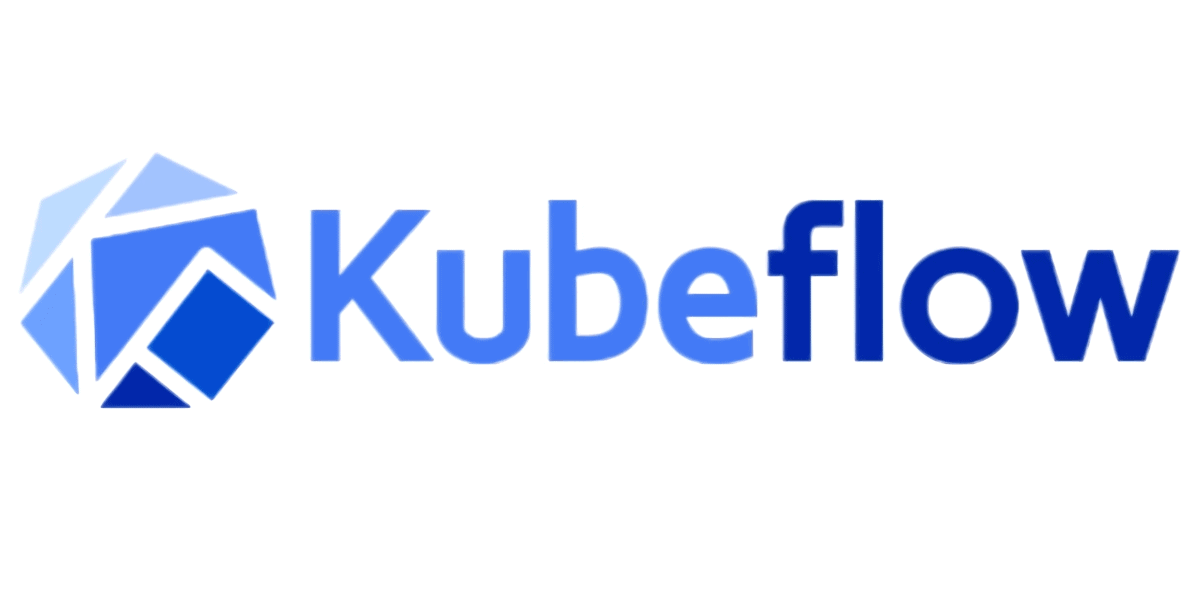
Kubeflow is an open-source platform built for deploying, scaling, and managing ML workflows on Kubernetes. It simplifies the process of running ML pipelines at scale and ensures reproducibility across teams.
Top Features:
- End-to-end ML pipeline management.
- Native Kubernetes integration.
- Support for Jupyter Notebooks and TensorFlow.
- Distributed training and hyperparameter tuning.
Pros:
- Excellent for large-scale deployments.
- Open-source with active community support.
- Works well with cloud-native tools.
Cons:
- Steep learning curve.
- Requires Kubernetes knowledge.
Pricing:
- Free and open-source.
G2 Reviews:
- Users value its scalability for enterprise workflows.
- Some find it challenging to configure and maintain.
8. CML (Continuous Machine Learning)
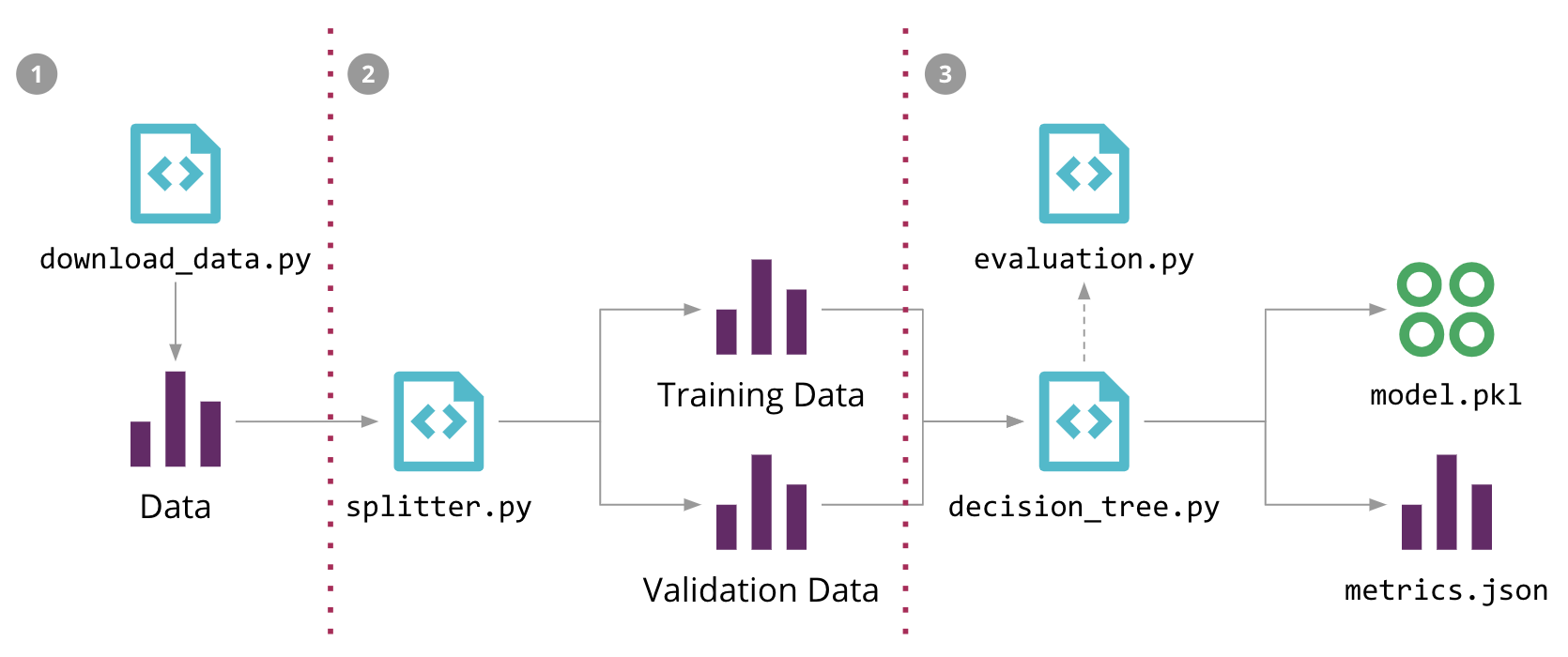
CML is an open-source tool that integrates machine learning workflows into CI/CD pipelines. Developed by the creators of DVC, CML helps automate model training, evaluation, and reporting directly within version control systems like GitHub and GitLab.
Top Features:
- Seamless integration with CI/CD pipelines.
- Automated reporting and visualization.
- Support for cloud and on-premise environments.
- Works with Git-based workflows.
Pros:
- Simplifies CI/CD for ML projects.
- Compatible with popular cloud platforms.
- Open-source and easy to adopt.
Cons:
- Limited to CI/CD use cases.
- Requires understanding of Git and CI/CD workflows.
Pricing:
- Free under the MIT license.
G2 Reviews:
- Users appreciate its automation capabilities.
- Some mention a lack of advanced visualization features.
9. Comet.ml
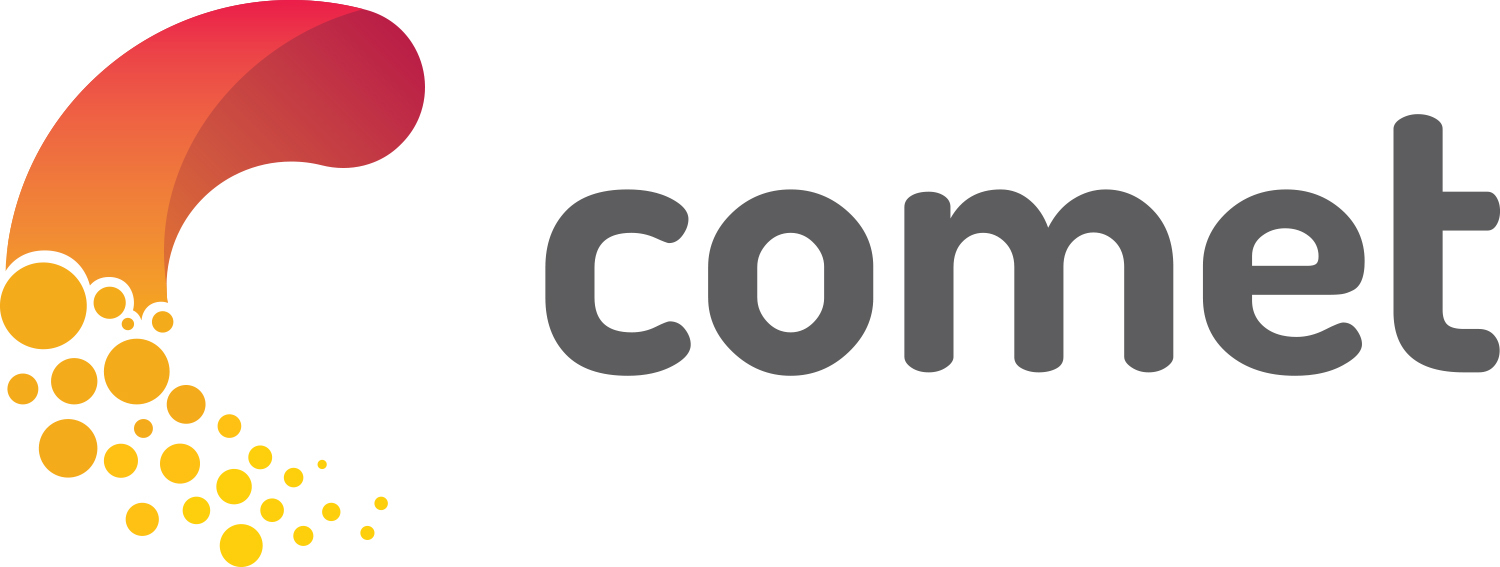
Comet.ml is a cloud-based tool for experiment tracking, model optimization, and collaboration. It helps data scientists manage and visualize experiments, ensuring reproducibility and transparency. Comet.ml supports integration with major ML frameworks and platforms.
Top Features:
- Real-time experiment tracking.
- Model versioning and comparison tools.
- Rich visualization dashboards.
- Collaboration features for teams.
Pros:
- User-friendly interface.
- Strong focus on collaboration.
- Supports various ML frameworks.
Cons:
- Advanced features may require paid plans.
- Limited offline capabilities.
Pricing:
- Free plan available; premium plans for teams and enterprises.
G2 Reviews:
- Users praise its intuitive interface and visualization tools.
- Some wish for more advanced integration options.
10. Guild.ai
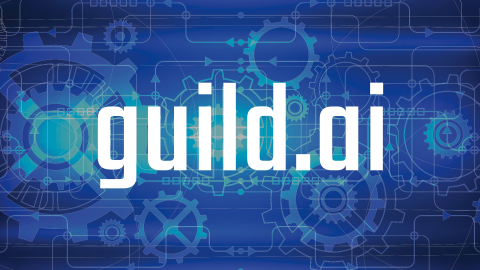
Guild.ai is a lightweight tool designed for managing experiments and model versions in ML workflows. It tracks changes in code, data, and configurations, helping teams build reproducible projects.
Top Features:
- Automated experiment tracking.
- Lightweight and easy to set up.
- Compatibility with major ML frameworks.
- Command-line interface for quick usage.
Pros:
- Simple and developer-friendly.
- Effective for tracking without heavy infrastructure.
- Open-source and actively maintained.
Cons:
- Limited GUI support.
- Fewer collaboration features compared to competitors.
Pricing:
- Free under the Apache 2.0 license.
G2 Reviews:
- Users value its simplicity and ease of use.
- Some find the lack of a GUI a drawback.
Conclusion
In conclusion, as ML models become more complex, using versioning tools to manage versions, track changes, and ensure reproducibility is essential.
In this blog, we've explored the top 10 model versioning tools available in the market today, including Git, DVC, MLflow, Pachyderm, Neptune, Polyaxon, Kubeflow, CML, Comet.ml, and Guild.ai. Each tool has its own unique features and benefits, so it's important to choose the right one for your specific ML workflow.
Using a model versioning tool, you can streamline your development process, collaborate more effectively with team members, and ensure the accuracy and reproducibility of your ML models.
FAQs
1. What are model versioning tools for machine learning workflows?
Model versioning tools are software solutions that allow you to monitor and manage various versions of machine learning models throughout their development and deployment lifecycles.
2. Why is model versioning crucial in machine learning workflows?
Model versioning is essential in ML workflows because it lets you keep track of model changes, compare multiple versions, revert to prior versions if necessary, efficiently cooperate with team members, and preserve reproducibility.
3. What are some of the most common model versioning tools for machine learning workflows?
Git, DVC (Data Version Control), MLflow, and Neptune.ai are some prominent model versioning platforms for ML workflows.
4. How is Git related to model versioning?
Git is a popular distributed version control system that can be used to version models. It helps you to monitor changes, experiment with branches, merge code and model changes, and work with other team members.
5. What is DVC (Data Version Control)?
DVC is an open-source version control system that was created primarily for managing machine learning projects. It focuses on versioning huge files like datasets, models, and experiment outcomes while also integrating with Git for code versioning.
6. What is MLflow?
MLflow is a free and open-source platform for managing the ML lifecycle. It features experiment tracking, model packing, and model deployment components. MLflow is compatible with a variety of model versioning systems, including Git.

Simplify Your Data Annotation Workflow With Proven Strategies
.png)


